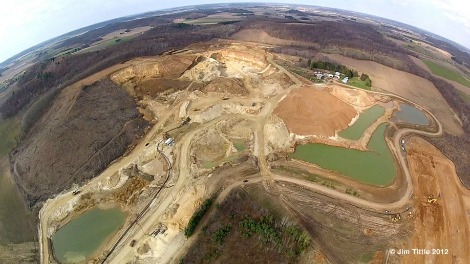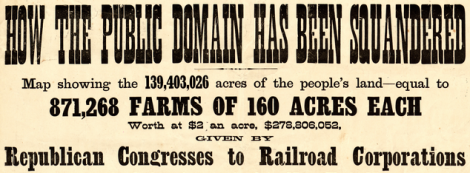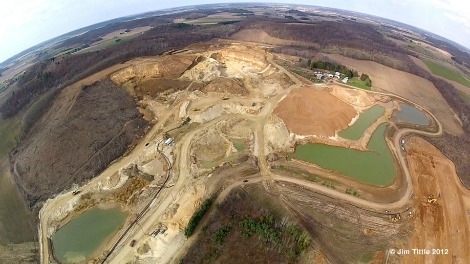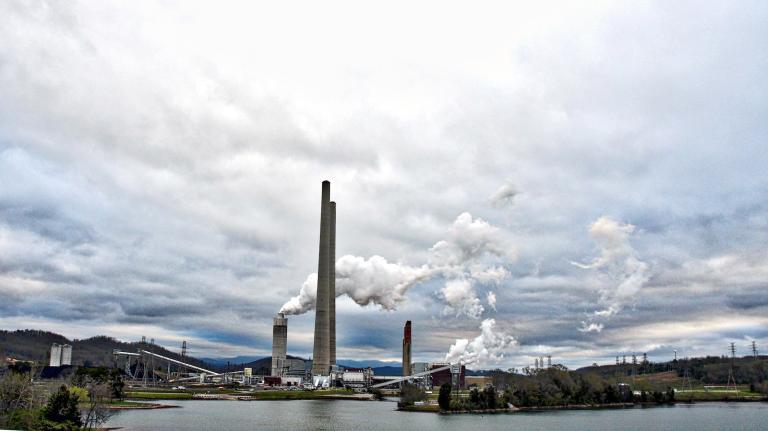
A sand mine near Chippewa Falls. (Photo by Jim Tittle/The Price of Sand.)
Conservatives are trying to make Solyndra the poster child for bad government investment. They’d have an easier argument — if many unhappy benefactors — if they targeted public land use.
We’ve talked about this before: how the government auctions off mineral resources at low, low prices allowing private sector companies to make massive profits.
That’s only part of it. There’s also the shortsightedness that goes into turning over pristine land, even protected areas, for extraction and development. This week, the Center for American Progress and the Sierra Club launched a video series profiling three areas — the Grand Canyon watershed, Bryce Canyon, and Wyoming’s Noble Basin — that might soon be impacted by private sector extraction.
The House is trying to make this alarmingly easy process even easier. Earlier today, the House of Representatives held votes on a bill — H.R. 4402, introduced by Rep. Mark Amodei (R–Nev.) — that would greatly facilitate the permit process for mining.
President Obama’s view of H.R. 4402 is clear:
The Administration strongly opposes H.R. 4402, which, though vaguely worded, would undermine and remove the environmental safeguards, for, at a minimum, almost all types of hardrock mines on Federal lands. …
The legislation also undermines existing law calling for the multiple uses of public lands by placing mining interests above all other uses. This change has the potential to threaten hunting, fishing, recreation and other activities which create jobs and sustain local economies across the country. Furthermore, the Administration opposes the legislation’s severe restrictions on judicial review. While the legislation purports to limit litigation, its extremely short statute of limitations and vague constraints on the scope of prospective relief that a court may issue are likely to have the opposite effect.
Democrats proposed a series of amendments aiming to blunt the bill’s negative impacts:
- Extend permit review period from 30 days to a year? Rejected.
- Prohibit permits for activity that impacts hunting, fishing, grazing, or recreation? Rejected.
- Use the National Research Council’s definition of “critical” minerals, thereby excluding sand and clay? Rejected.
- Oh, and create a royalty payment to the government of 12.5 percent of the value of extracted minerals? Rejected.
Two amendments from Republican members — one which would limit the Forest Service’s ability to restrict access to development areas — were approved. A final vote on H.R. 4402 has not yet been held.
The odds are not good that we’ll succeed in our proposed campaign to make the government’s poor economic decisions around land use a conservative cause celebre. Partly because mining interests have donated $5.8 million to House members this year alone.
But also because of this:

That’s from an 1884 flyer produced by the Democratic party to call attention to the Republican transfer of public land to the railroads, possibly an even more powerful lobby at the time than the natural resources sector today.
Takeaway: we’ve been fighting for reasonable use of public lands for at least 128 years. It’s safe to say, then, that we could get some traction on the issue by as soon as the year 2140.




